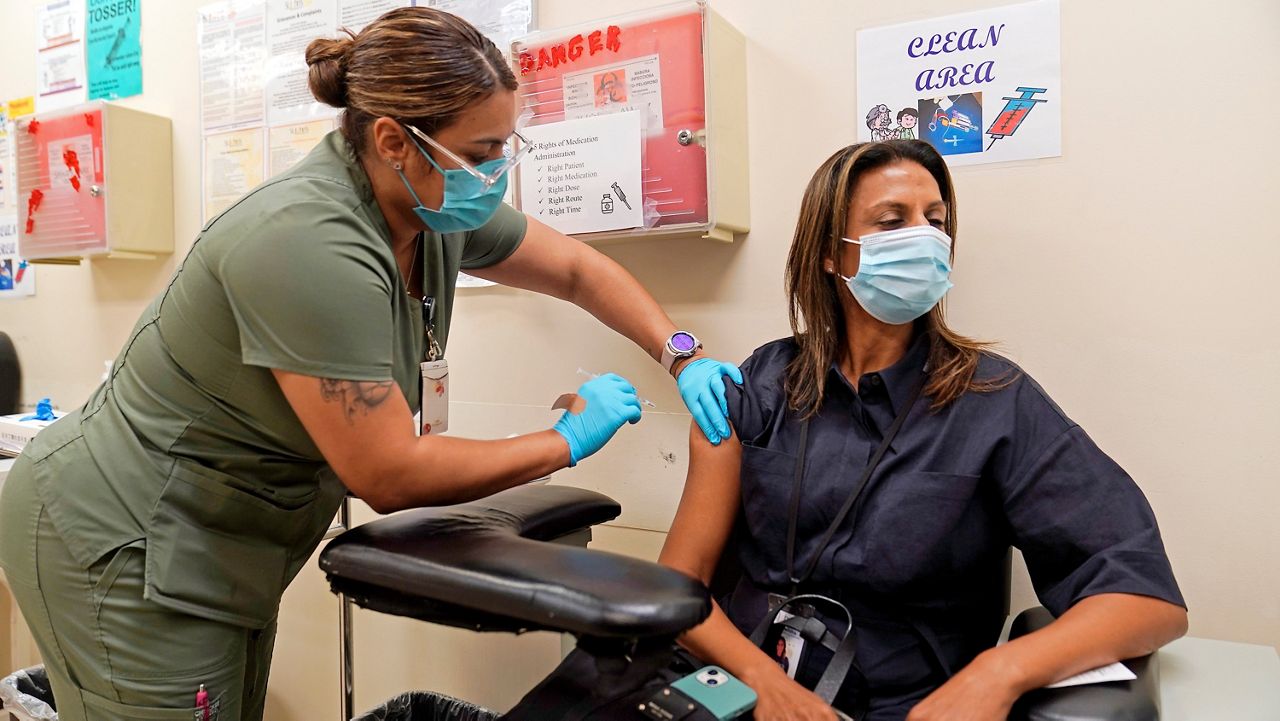LEXINGTON, Ky. — University of Kentucky researchers have found that maternal vaccination against COVID-19 works to protect both the mother and baby.
The findings come as COVID-19 cases and hospitalizations are on the rise across the U.S. and the commonwealth after the holidays. “COVID-19 is here to stay. It’s not going anywhere,” said Ilhem Messaoudi, Ph.D., chair of the Department of Microbiology, Immunology and Molecular Genetics in the UK College of Medicine. “The study shows that vaccines are safe and maternal vaccinations are an effective way to protect not only the mom but the baby until they become eligible for the vaccine. We don’t think that you can fully protect the baby by just breastfeeding.”
Messaoudi and her team at UK conducted the study in collaboration with Oregon Health & Science University.
Researchers monitored a cohort of 120 women from March 2021 until June 2022, through pregnancy, delivery and postpartum, plus two rounds of COVID-19 vaccinations and their booster shot. Roughly 90% of participants received Pfizer’s vaccine. They found that antibodies passively transfer from mother to fetus in utero, offering the most protection.
“So at birth, these babies had maternal antibodies in circulation, which is fantastic. Getting vaccinated during pregnancy not only protected the mom, but also now provided passive protection for their newborns who are not eligible for the vaccine,” said Messaoudi.
The study found that participants receiving a booster after giving birth led to a massive increase in anti-bodies in the mother’s plasma and in her breast milk. “You really needed the first two shots and the booster to achieve excellent protection, to have that very long-lived, durable immune response. Then the newborn is protected via antibody transfer in utero through the placenta and postnatal through breastfeeding,” Messaoudi explained.
The Centers for Disease Control and Prevention recommends everyone 6 months and older get the COVID-19 vaccine, including people who are pregnant, breastfeeding, trying to get pregnant now or might become pregnant in the future.
People who are pregnant or were recently pregnant are more likely to get severely ill from COVID-19 compared to people who are not pregnant, according to the CDC, and have a higher risk for preterm birth. According to Messaoudi, that’s why it’s even more important that pregnant women get vaccinated.
Researchers said they will continue to monitor study participants and expect to release more findings on the boosters’ efficacy against the omicron variant in the continued fight against COVID-19.
“The vaccines are safe and work. That’s what’s really important,” Messaoudi concluded.



